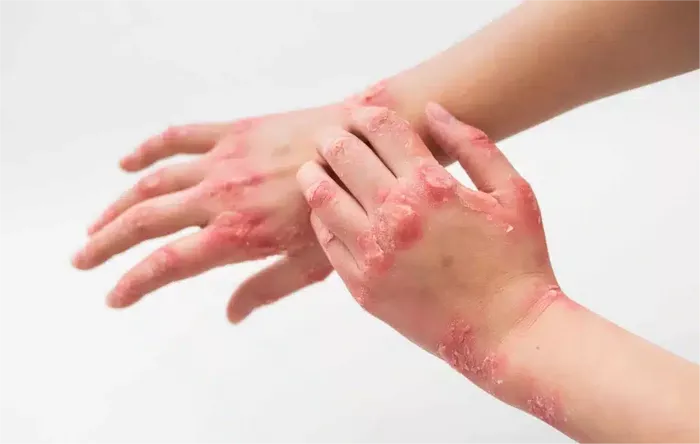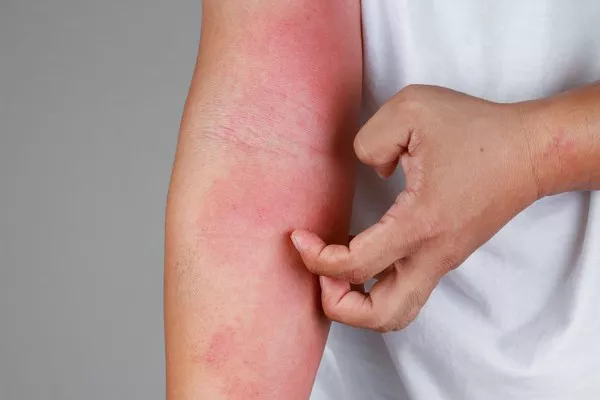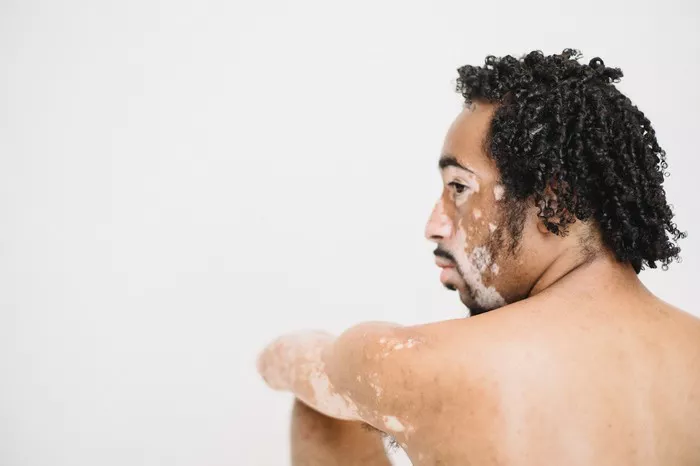Helena Paul and her partner have spent most of their daughter’s three years of life attempting to alleviate her persistent atopic dermatitis, more commonly known as eczema.
Three-year-old Monica Maoate can point out the scars on her body – elbows, left shoulder blade, and behind her right knee, all affected by the condition which disproportionately impacts Pasifika and Māori children compared to their European peers.
“From the start… we were constantly at the doctor’s – almost every week – for prescriptions and creams to ease her,” Paul shared with the Herald.
“We kept applying, but it wasn’t helping.”
The ‘miracle cream’ that promised relief appeared unexpectedly. While scrolling through TikTok, Paul encountered an influencer praising a cream for combating eczema: NaturaCoco. It quickly gained popularity among Pacific and Māori communities through social media endorsements.
Parents began sharing before-and-after photos of their children’s severe eczema, which reportedly vanished within days. Phrases like “magic” and “miracle cream” became commonplace.
NaturaCoco, manufactured in the Philippines and distributed by Hamilton-based retailer NaturaCoco New Zealand, was marketed online as “kid-friendly” and suitable “for all ages.”
Paul purchased a 100g pot for $34.95 for Monica. Within 24 hours of application, she noted significant improvement.
“It became our go-to for Monica’s eczema. We even bought an extra pot for her preschool, so teachers could apply it during flare-ups,” Paul explained.
“My daughter stopped scratching at night, and we didn’t need to constantly reapply. If there was a minor flare-up, we’d apply it and it would clear by the next day.
“I trusted it. It was affordable, and we stocked up on it. It was good.”
However, the positive experience was short-lived. In April, New Zealand’s medical safety authority, Medsafe, issued an urgent alert, prohibiting the sale of NaturaCoco cream and advising against its use.
“Do not use NaturaCoco Moisturising Cream or Dok Apo Moisturiser Soothing Cream,” Medsafe cautioned.
The cream, also sold under the name Dok Apo, was found to contain the potent steroid corticosteroid fluocinonide, which should only be used with a doctor’s prescription. The product labels did not disclose the presence of fluocinonide.
There are no approved products containing fluocinonide in New Zealand.
Extended use of steroid creams over large skin areas, especially on children, can lead to adverse effects such as reduced growth, according to the UK National Health Service.
Medsafe seized existing stocks of NaturaCoco in New Zealand and warned families about the heightened risks for children.
“Safely dispose of it or contact a local pharmacy for safe disposal,” the advisory read.
NaturaCoco’s website stated it could no longer sell or distribute its products in New Zealand and was cooperating with Medsafe for a recall, offering refunds to customers.
“We deeply regret this oversight. As small business owners, we are devastated by this outcome,” the statement read.
“We introduced this cream to the New Zealand market after finding relief for our own child who struggled with skin issues.”
In New Zealand, approximately 193,000 children and 212,000 adults live with eczema, according to the Eczema Association NZ (EANZ). For 20-40% of diagnosed children, eczema persists throughout their lives.
Paul expressed frustration to the Herald about Medsafe’s ban on NaturaCoco.
“It’s incredibly frustrating because NaturaCoco worked for us. Now, I’m searching for something new, trying not to dwell on NaturaCoco.”
Dr. Scott Barker, a dermatologist at the NZ Dermatology & Skin Cancer Centre, emphasized that eczema has no cure, and treatment focuses on reducing itchiness, minimizing rashes, and improving quality of life.
A recent survey commissioned by the Eczema Association found that eczema sufferers typically try an average of five treatments. One in five has attempted more than 20.
Of those surveyed, 62% expressed a sense of hopelessness after trying multiple treatments and consulting various doctors, while 84% were frustrated by the lack of effective long-term solutions.
EANZ spokesperson Vanessa Jenkins described a cycle of hope and disappointment among eczema sufferers, continually seeking solutions.
“There are several creams and medications prescribed by dermatologists and GPs, but there’s no single miracle cream yet,” Jenkins noted.
Paul lamented the difficulty of managing Monica’s eczema without the cream that had proven effective.
The family has experimented with kawakawa and oils from the Cook Islands, but nothing has matched NaturaCoco’s efficacy.
“For my daughter, it’s like going back to square one,” Paul sighed.
Related Topics:



























